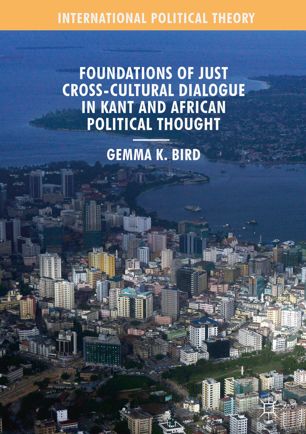

Most ebook files are in PDF format, so you can easily read them using various software such as Foxit Reader or directly on the Google Chrome browser.
Some ebook files are released by publishers in other formats such as .awz, .mobi, .epub, .fb2, etc. You may need to install specific software to read these formats on mobile/PC, such as Calibre.
Please read the tutorial at this link: https://ebookbell.com/faq
We offer FREE conversion to the popular formats you request; however, this may take some time. Therefore, right after payment, please email us, and we will try to provide the service as quickly as possible.
For some exceptional file formats or broken links (if any), please refrain from opening any disputes. Instead, email us first, and we will try to assist within a maximum of 6 hours.
EbookBell Team

5.0
18 reviewsThis book addresses the potential existence of shared foundational principles in the work of Immanuel Kant and a range of African political thought, as well as their suitability in facilitating just and fair cross-cultural dialogue. The book first establishes an analytical framework grounded in a Kantian approach to understanding shared human principles, suggesting that a drive to be self-law giving may underpin all human interactions regardless of cultural background. It then investigates this assumption by carrying out a theoretical analysis of texts and speeches from a variety of African scholarship, ranging from the colonial period to the present day. The analysis, divided into three distinctive chapters covers the Négritude movement, African socialism and post-colonial philosophers, including such thinkers as: Léopold Sédar Sengor, Julius K Nyerere, Kwame Nkrumah, Kwame Anthony Appiah, Kwasi Wiredu and Kwame Gyekye. The author argues that underpinning each of their very different theoretical positions and arguments is a foundational argument for the importance of self-law giving. In doing so she highlights the need to respect this principle when embarking on cross-cultural dialogues. The book will be of interest to students and scholars in the fields of African political thought, political theory and international relations.